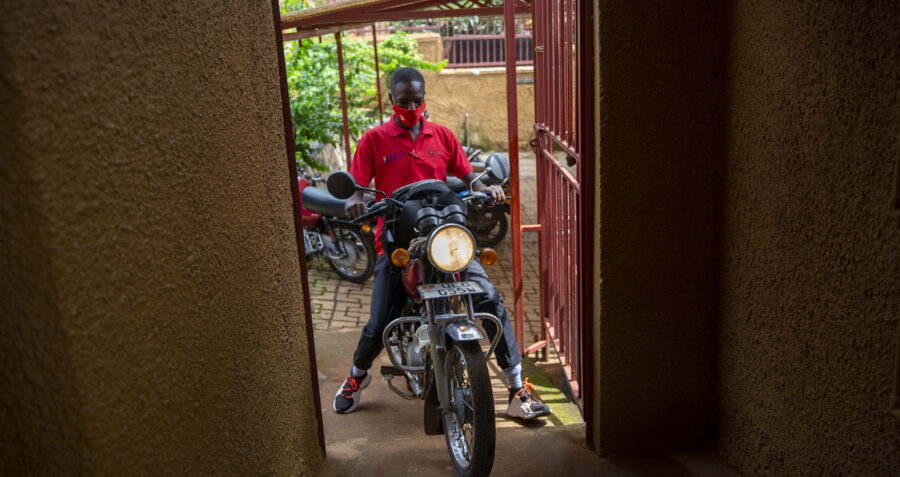Access to treatment for YPLHIV during COVID-19

Key information
- Organisation: SRHR Umbrella Programme implementing partners
- Country: Uganda
- Region: Eastern and Southern Africa
- Stage of innovation: Stage 3: Pilot
- Start date: 2020
- End date: 2021
- Type of innovation: Services delivery innovation: new or different way of providing a service
- Funder: SIDA through the Swedish Embassy in Kampala
Summary of intervention
The second COVID-19 lockdown, travel restrictions and curfews presented major barriers for young people living with HIV (YPLHIV) who could not travel to access health facilities for ART refills and other support services. This threatened adherence to treatment, viral suppression, and their overall health and well-being.
SRHR Umbrella programme implementing partners developed strategies to ensure YPLHIV continued to receive vital medication. These included community-based ART delivery and transporting testing equipment so peers could monitor young people’s viral load in the community. ART was delivered to agreed meeting places, and a hub system meant a young person could get bled at a nearby health facility. Peer educators provided psychosocial support. ‘Moonlight activities’ were conducted for key populations between 6 PM and 8PM to ensure that beneficiaries and health workers could move safely before curfew, enabling continuity of service provision. Other innovations included peer educators mobilising clusters of about 20 people in communities so that health workers could meet them and deliver services. Some implementing partners, such as Alive Medical Services, supported health facilities to partner with other clinics nearer to the communities. Young people were then mobilised to access services at the partner clinics free of charge.
learning
This intervention demonstrated the need to work closely with local authorities to secure relevant authorisations, such as waivers to allow implementing partners and peer educators to travel. There were challenges conducting ‘moonlight’ outreach for key populations when their usual meeting places, such as bars and clubs were closed. There is a need to provide adequate personal protective equipment for peer educators, health workers, and others volunteering to deliver ARVs and provide other services during COVID-19.
sustainability
These strategies were in response to COVID-19 restrictions. Now that they are in place, and have proved their efficacy, they can continue to be used and adapted to respond to future pandemics.
Find out more information on the SRHR Umbrella Grant.

